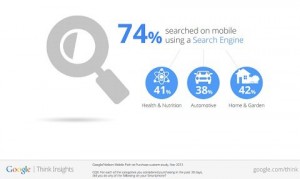Is social media engagement rate still a relevant metric? To make a long story short, the answer is yes. While using social media metrics such as conversion rate or lead generation rate is a more common practice to assess the quality of social media marketing, measuring social media engagement rate remains a vital tactic to analyze the effectiveness of your social media efforts. Here’s why.
1. Assess your content quality
Every prominent social media platform offers a built-in analytics tool that lets you analyze your social media page’s data. For example, Facebook has a built-in analytics tool for Facebook pages that lets you see the amount of positive or negative engagement your posts generate or the number of new Facebook fans or page visits you garner within a specified timeframe. Gaining these insights helps you understand the type of content or blogs your audience positively engages with or dislikes and whether your social media marketing efforts have helped you generate more Facebook following. Once you have gained these insights, you can optimize your content and social media marketing to improve your marketing campaigns and achieve targeted results.
2. Compare yourself with the industry benchmark
The benchmark for social media engagement rate varies depending on the industry. For example, the engagement rate per post on Facebook for the food and beverage industry was 0.12% in 2019 while retail was 0.08% during the same year. Understanding your social media engagement in comparison with the industry benchmark paints a better picture on how well your social media efforts are truly performing and helps you establish more realistic objectives for your social media marketing. For instance, if you’re in the retail space, it’s realistic to set a goal of 0.15% Facebook engagement rate whereas 0.50% Facebook engagement rate isn’t.
3. Improve online visibility
Healthy social media engagement will help you gain more free online visibility. For example, the more engagement your Facebook post generates, the more likely that the post will appear on news feeds of your Facebook fans who haven’t liked the post or friends of the Facebook fans who have liked the post. The reason for this is that Facebook wants to show Facebook posts that have high engagement rates to related audiences.
Instagram’s algorithm behaves similarly to Facebook’s algorithm. If an Instagram post has a high engagement rate, Instagram will show that post more frequently on related audiences’ Instagram feeds.
More, when users share your Instagram post on their Instagram Story, it’ll help you gain more online visibility. For example, when Instagram users share your Instagram post on their Instagram Story, their followers will see your post. This sharing of your social media content will further amplify your brand reach and awareness. These major benefits of maximizing engagement which will lead to more online visibility are reasons why businesses need to analyze their social media engagement frequently and diligently to ensure that they’re producing social media content that their audiences are interested in and engage with.
Digital & Social Articles on Business 2 Community
(9)








